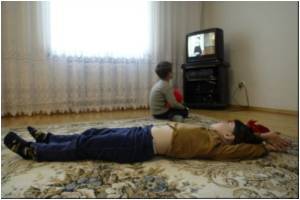A new study has found that watching television and its heavy dose of medical content in news and drama can cause more concern about personal health and reduce a person's satisfaction with life.

People develop these perceptions because TV viewing leads them to believe they have a greater likelihood of being victimized by health-risks as well as a strong belief in the severity of those risks.
Millions watch medical shows such as Grey's Anatomy, House, and E.R. Evidence has shown that the mass media are powerful in disseminating health knowledge and changing health attitudes and behaviors through such programming.
Such knowledge, however, may lead people to think they are more likely to suffer from the maladies presented on TV.
As people become more knowledgeable, they enjoy life less. But ignorance, at least of TV's presentations of medical information, is closer to bliss.
These findings extend previous research that TV viewing can also cause people to be less satisfied with their lives because it makes them more materialistic and causes them to overestimate other people's possessions compared to their own.
Advertisement
In her study, the URI professor surveyed 274 students in the College of Communications at the University of Alabama about their TV viewing and life satisfaction. The students were not told the purpose of the survey.
Advertisement
"While this surveyed group shows dissatisfaction, I suspect that if I surveyed a more general population the dissatisfaction would be even higher," said the researcher.
The research was published in the journal Mass Communication and Society.
Source-ANI









